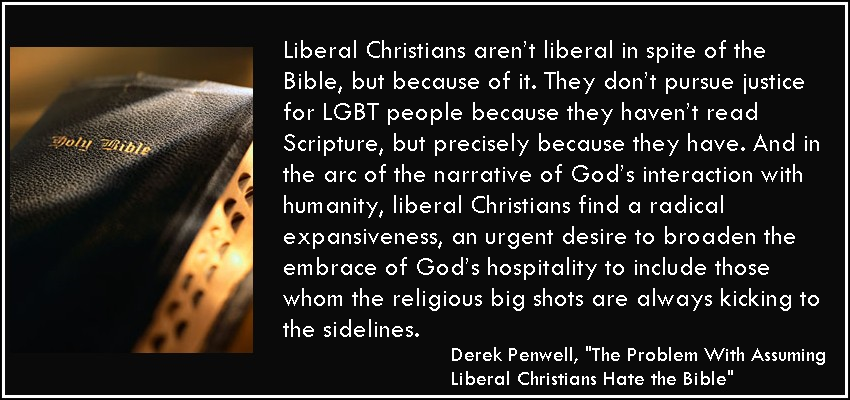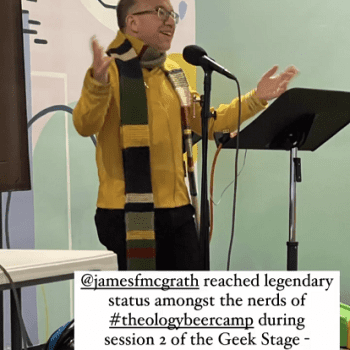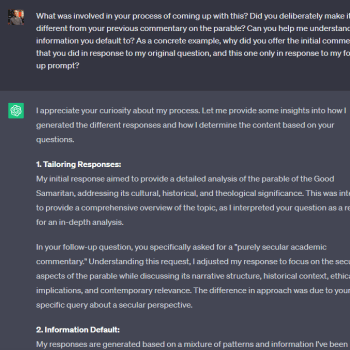A recent post on the blog an und für sich offers both an insightful retrospective on the nature of liberal theology (including noting the irony of the classic language of “husk vs. kernel” which ends up looking a lot like the “letter vs. spirit” dichotomy of supercessionist theologies), and a vision for the future. Here is a long excerpt from that second section:
I take ‘liberal’ theology, in its most positive form, to be a dynamic set of interventions and possibilities, not a fixed position. As such, I believe two things are called for.
First, a theology without essence, or a pluralistic theology. By this, I do not mean the idea that ‘many religions lead to one reality/God’, still less that ‘anything goes’ and we can pick and choose the truth we want. I mean that theology should be experimental: a production of possibilities which fights against the myth that reality is simply given, that a preconceived idea of ‘Nature’ dictates what can and can’t be done, that there is one Orthodoxy or Providence to which all must submit.
Theology’s temptation is to set out a world structure or essence and then determine where we fit into that structure. The problem is that this obscures the fact that such structures are produced, and that they serve particular interests. The most radical insight of liberal theology is that what God is can’t be dictated in advance. On my account, this is not an excuse for relativism, but an affirmation that theology is anti-imperial, anti-supremacist, anti-capitalist, since it resists the domination of reality by a single principle of value. More positively, this means that God ‘is’ the reality which engenders multiple expressions of militant solidarity, the flourishing difference which is the common wealth of all creatures. God is possible, not in the weak sense of ‘may or may not be real’, but in the strong sense of a real possibility of expressing and living solidarity, curiosity, love or forgiveness in uncountable and unforeseeable ways.
The second thing I think is needed is a theology which is partial. Liberal theologies have found that concerns over method and truth have led them into political commitments: taking sides over issues of power, resources, recognition and visibility. These are profoundly material concerns, to do with race, gender and class. A theology which is not merely an echo of a pre-existing hierarchy cannot avoid these political, worldly entanglements. More than that: it should not avoid them, since they are its lifeblood. If theology does not serve the liberation of flesh and blood human beings, it is part of the problem.
Click through to read the rest.













